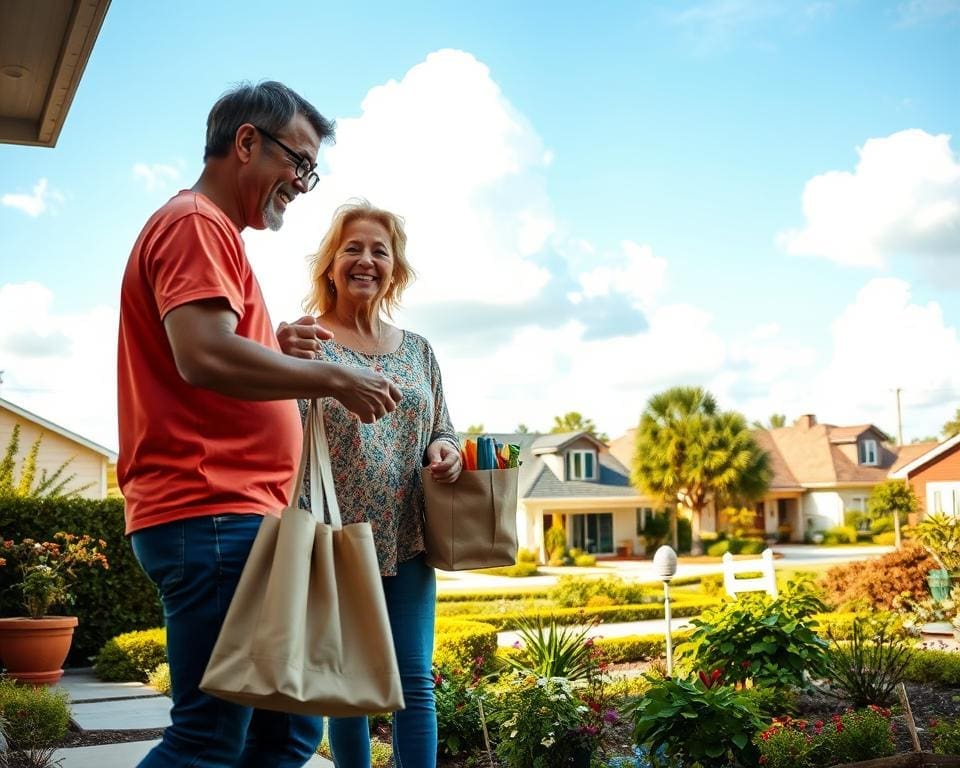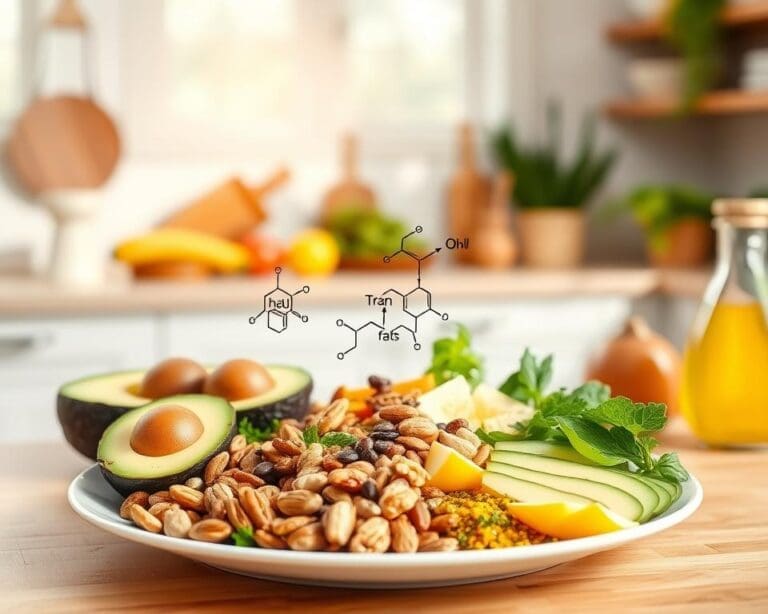The notion that community support can enhance immune health presents a fascinating avenue for exploration. As we delve into the idea of whether helping a neighbour can strengthen immunity, it becomes apparent that acts of kindness in our local communities may hold significant benefits for our physical well-being. This section sets the stage for an enlightening discussion, encouraging us to reflect on how interpersonal connections not only foster a vibrant neighbourhood spirit but may also serve as a powerful ally in promoting overall health.
Understanding the Connection Between Community Support and Health
Examining the bond between community support and health reveals a profound interaction that influences physical well-being. Engaging with others not only enhances individual resilience but also strengthens health outcomes across populations. The interdependence of social connections plays a crucial part in nurturing both mental and physical health, showcasing how these relationships can shape our overall well-being.
The role of social connections in physical well-being
Social connections serve as a vital component in maintaining physical health. Individuals who cultivate meaningful relationships often experience lower stress levels and enhanced emotional support, contributing to improved health outcomes. Studies demonstrate that a robust network of friends and family encourages healthier lifestyle choices, fostering a proactive attitude toward personal health.
Research findings on community engagement and health outcomes
Research consistently highlights the positive correlation between community engagement and health outcomes. For instance, individuals actively participating in their communities show a notable reduction in chronic illnesses and improved mental health indicators. These findings underline the importance of community support and health, revealing that engaged individuals are more likely to have better immune function and overall well-being.

Can helping a neighbour strengthen immunity?
Numerous studies suggest a fascinating link between kindness and immune response, indicating that engaging in altruistic behaviours can have tangible benefits for one’s health. The evidence points to a relationship where acts of kindness foster not just emotional connections but also trigger physiological changes within our bodies.
Studies linking kindness to immune response
Research into the impact of kindness reveals that individuals who actively participate in helping others demonstrate improved immune system markers. Scientific investigations show increases in antibody production among those who frequently engage in kind acts, suggesting a direct correlation between altruism and the body’s capacity to defend itself against illnesses. Additionally, lower levels of stress hormones in individuals involved in supportive behaviours highlight how kindness can mitigate stress, which is known to adversely affect immune function.
The underlying mechanisms appear to involve the activation of specific neural pathways linked to reward and positive emotions. This not only promotes a sense of well-being but may also enhance the body’s immune response. Such insights lead to reflections on the question, can helping a neighbour strengthen immunity? It stands to reason that fostering community bonds through kindness serves a dual purpose: nurturing relationships while uplifting our health in the process.
Boosting immunity through kindness
Acts of kindness play a remarkable role in enhancing both mental and physical health. By engaging in compassionate behaviours, individuals can trigger a series of physiological effects that bolster their immune systems. These effects are not just anecdotal; they are supported by findings from behavioural science, which illuminate how kindness impacts bodily functions. Engaging in such generous acts can lead to improved blood circulation and reduced stress levels, both of which are crucial for maintaining a robust immune response.
Acts of kindness and their physiological effects
Performing kind deeds has been shown to lower cortisol levels, often referred to as the stress hormone. High cortisol levels are linked to various health issues, including a weakened immune function. When individuals witness or partake in acts of kindness, their bodies may respond positively, resulting in enhanced overall health. The University of California has highlighted that this stimulus can create a ‘helper’s high’, which is associated with the release of beneficial neurotransmitters. This process contributes to boosting immunity through kindness, creating a cycle of positivity that can be immensely beneficial.
How positive emotions enhance immune function
The impact of positive emotions cannot be overstated when it comes to immune health. Emotions such as joy, gratitude, and love act as natural boosters for immunity. When individuals feel good—whether due to their own actions of kindness or witnessing such actions—they are more likely to experience improved physiological effects. Studies indicate that these uplifting moments can lead to a stronger immune response, reinforcing the essential link between emotional well-being and physical health. Fostering an environment rich in positive interactions can therefore serve as an effective strategy for enhancing immune function.
Benefits of helping others for immunity
The act of helping others extends beyond mere kindness; it yields significant health advantages. Engaging in altruistic behaviours promotes psychological benefits, enhancing emotional well-being and consequently leading to improved physical health. Individuals who regularly participate in community service often report feeling fulfilled and connected, which correlates strongly with a positive state of mind.
Psychological benefits that correlate with physical health
Research indicates a clear link between altruism and psychological benefits. Regular acts of kindness can decrease feelings of depression and anxiety, fostering a greater sense of life satisfaction. This emotional uplift translates to tangible health improvements, demonstrating how the benefits of helping others for immunity manifest through enhanced mental states.
The impact of altruism on stress reduction
Altruism actively contributes to stress reduction, a factor vital for maintaining a robust immune system. Studies from reputable institutions highlight that those engaged in voluntary community service experience lower levels of anxiety. By nurturing a supportive community, individuals can cultivate a healing environment that fosters both personal and collective well-being.
Neighbourly acts and immune response
Engaging in neighbourly acts significantly contributes to community support and can enhance immune response. Many individuals have taken proactive steps to foster resilience in their communities, showcasing how acts of kindness can lead to healthier environments. Concrete examples of these neighbourly activities illustrate the tangible benefits derived from collective efforts.
Examples of neighbourly support activities
Various forms of community support emerge from neighbourly acts that nurture resilience:
- Volunteering at local food banks to assist families in need.
- Creating mutual aid groups that offer help with daily tasks for vulnerable individuals.
- Establishing community gardening projects that promote cooperation and healthy living.
These activities not only provide immediate assistance but also fortify social bonds, highlighting the importance of community engagement in fostering a robust immune response.
Real-life stories of community resilience
Stories from across the United Kingdom demonstrate the profound effects of neighbourly acts. During the COVID-19 pandemic, local initiatives emerged to support those who were isolating. Neighbours organised shopping runs, delivered medication, and checked in on each other regularly, illustrating the power of empathy. Success stories from communities have been shared widely, emphasising how collective efforts resulted in increased resilience, ensuring that no one felt alone in their struggles. Such narratives inspire others to get involved, underscoring that simple acts of kindness can significantly enhance community well-being.
Promoting well-being through helping neighbours
In today’s fast-paced world, the importance of fostering connections within our local communities cannot be overstated. Promoting well-being through helping neighbours serves not only to uplift the spirits of those around us but also contributes significantly to our own health and resilience. Grassroots initiatives across the UK demonstrate how engagement in community service enhances personal health outcomes while fortifying the fabric of our neighbourhoods.
As individuals actively participate in activities that support their neighbours, they not only gain immediate psychological benefits but also contribute to broader community wellness. Whether through organising local clean-ups, sharing resources, or simply checking in on an elderly neighbour, each act of kindness creates a ripple effect that strengthens the overall health of the community.
Encouragingly, research showcases how communities characterised by mutual support see lower stress levels and enhanced immune function among their members. By exploring our capacities for kindness and taking deliberate steps to help those nearby, we participate in a powerful cycle that fosters a supportive environment. Ultimately, creating a neighbourhood where individuals care for one another profoundly impacts both personal and collective health, underscoring the vital role of community engagement in promoting well-being through helping neighbours.









